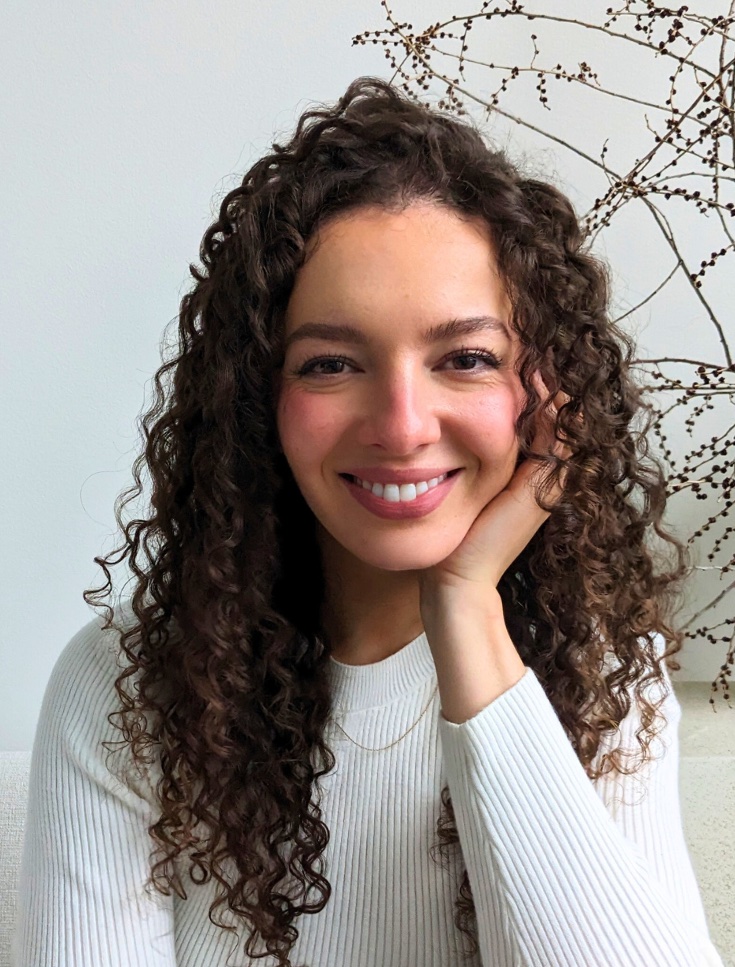
COACHING
What is Coaching?
Coaching is, at its core, two people coming together and co-creating a new and purposeful future that is different from the default one they would experience if they took no action.
Working with a coach, you explore what you want to accomplish, what is getting in your way, come up with a game plan, and develop the skills and mindset needed to create the future you desire.
It’s like having a personal trainer for your life.
No athlete would consider going to the Olympics without the support of a coach. The extra edge the coach provides makes all the difference. Now that coaching has become readily available,many choose to use this advantage in their own personal and professional lives.
Meet Our Coach Adea at this link here.
How can I get started?
Our discovery call is the first step towards working with a coach. This conversation is not a commitment to long-term coaching, it is designed as a first step to explore what would best support you. This first call is complimentary so there is no-fee for this conversation, and it can last up to 90 minutes.
Schedule your discovery coaching call at this link here.
Who is coaching for?
Coaching is for people who:
- Have a deep desire for change
- Are looking for clarity
- Want to develop as a person
- Are ready to achieve their dreams
- Are looking for support or accountability
The simple answer is that coaching can be for all types of people. It works best when you have two or more of the characteristics above.
What challenges can coaching help me with?
Coaching can help with many personal challenges, which include:
- Thinking, ‘there must be more to life than this’
- Not doing what you enjoy most
- Not having enough time to spend (e.g. with the people you love, on social activities and hobbies etc.)
- Struggling to create satisfying relationships
- Feeling stuck, unfulfilled or like you’ve ‘hit a ceiling’
- Feeling stress and other emotions that seem hard to control
If you resonate with one or more of the statements above, it means that you have identified a gap between where you are now and where you want to be in your life. If you are willing to work on closing that gap and getting what you want, then coaching is likely a great option for you.
What benefits can I expect from coaching?
The benefits you can expect from coaching are that you will:
- Do more of what you are passionate and good at
- Make more money and create financial independence
- Increase your confidence and self-worth
- Have more time with family and friends
- Develop highly rewarding relationships with others
- Manage emotions masterfully and move toward action
- Feel more excitement about your life and have a renewed sense of purpose
- Increase your self-awareness of patterns of thinking or behaviours that were once holding you back
What does working with a coach look like?
First, you will have a discovery session with your coach to assess and determine if coaching is right for you. This discovery session can last up to 90 minutes and there is no charge for this session.
Then you decide if you want to enroll in a 3 or 6 month program with your coach at a cadence and frequency that fits your life and goals.
During your program, you will meet one-on-one with your coach about three to four times a month. Sessions are typically around 45 – 60 minutes in length. They take place virtually over Zoom and outside in nature.
How is coaching different from therapy, mentoring and consulting?
Coaching, therapy, and mentoring share a powerful mission — to make people feel and do better. As such, there are areas of overlap as well as some differences.
Here’s a brief overview of the differences between these practices:
Therapy: Looking at the past
Therapy is a professional practice focused on assessing and treating mental and emotional health issues. Therapists work with individuals who may be experiencing distress, psychological disorders, or emotional difficulties. Therapists may be licensed to practice the controlled act of psychotherapy in their state or province, and are trained to provide therapeutic modalities and techniques tailored to the client’s needs. You can explore more about therapy at this link here.
Mentoring: Someone’s own expertise
Mentoring involves a more experienced individual (mentor) providing guidance, advice, and support to a less experienced person (mentee). Mentors share their own knowledge, expertise, and insights to help mentees navigate their careers or gain industry knowledge.
Coaching: Looking to the future
Coaching focuses on helping individuals identify and achieve their personal and professional goals. Coaches typically work with clients who are looking to improve specific areas of their lives, such as career, relationships, or personal development. Coaches use powerful questioning, active listening, and various techniques to support clients in gaining clarity, creating action plans, and taking steps towards their goals. The coach acts as a facilitator, guiding the client’s self-discovery and helping them unlock their potential.
In summary, therapy focuses on resolving past experiences, mentoring involves receiving guidance from someone who shares expertise from their personal experience, and coaching is a future-oriented, skills-based practice to improve your life.

Shouldn’t I be able to reach my goals on my own without a coach?
While the opportunity to coach yourself is possible, taking action towards your goals on your own often presents a few challenges:
- Filtering through the Noise: Although information is readily available on the internet, it doesn’t necessarily make it quality information. It has become difficult to distinguish credible information and accurate facts from the abundance of opinions and misinformation. A quality, evidence-informed coach will do this for you.
- Making it Relevant to Me. With all the trustworthy and factual information out there, the next challenge is to determine what specifically applies to your unique circumstances and would benefit you. What may make sense for someone else might not be applicable to your situation, making it harder to find the right guidance. A coach will help you get clarity on how to move forward.
- Following Through With Your Plan. When working on your own you need to stay motivated, hold yourself accountable, and stay up-to-date with new information all while managing your regular life and existing responsibilities. This can be a lot for one person to do on their own. A coach can support you to achieve your goals.
Again, it is possible to achieve what you want on your own, but there is a difference between what is possible and what is optimal.
Because of this, more people are seeking out great coaches that can help them handle the stressors of modern life.
Curious about the impact of coaching? Here is a quick list of coaching statistics:
- Personal coaching provides an average 456% return and a 787% return on investment with business coaching. [Reference: PricewaterhouseCooper and Association Resources Centre, 2009]
- The International Coaching Federation (ICF) conducted a global coaching study in 2016, involving over 15,000 participants from 137 countries. The study revealed that coaching positively impacts various areas, including relationships, communication skills, work performance, and personal confidence. [Reference: International Coaching Federation, 2016]
- The most common benefit received from business coaching is increased self-confidence, followed by improved relationships (73%), communication skills (72%), interpersonal skills (71%), and work performance (70%). [Reference: Harvard Business Review, 2009]
- Coaching is one of the fastest growing industries with an estimated global revenue of $15.2 billion in 2022. [Reference: ICF Global Consumer Awareness Study, 2022]
When is coaching not a good fit?
Coaching is not for you if:
- You are not willing to change any part of your life
- You are primarily looking to explore your past and how it interferes with your overall mental health from a psychological perspective
- You are looking for a diagnosis and support with a medical issue, mental health diagnosis, addiction or past traumatic experiences
- Are unable to commit the effort and time to a coaching relationship for 3-months or longer
- You are not ready to invest financially into finding a solution to your challenges
What can I expect from the program?
The program is designed around your transformation – that is the main objective.
We designed this program around three stages that we navigate through depending on your needs:
Self-Awareness – The Foundation
In this stage, we develop your conscious holistic knowledge of your character, habits, feelings and behaviors. Core ideas that we explore at this stage:
- Values
- Strengths
- Goals & Desires, Passion, Purpose
- Sabotaging Voices
Self-Management & Emotional Mastery
This stage supports your ability to self-regulate oneself more effectively in response to this knowledge of oneself. Core ideas that we explore at this stage:
- Confidence Development
- Decision-Making
- Habit Development
Personal & Professional Relationships
This stage is about building in the work in the previous stages to successfully manage social relationships in work and community. Core ideas that we explore at this stage:
- Strategies & Tactics for Charisma type
- Rituals
- Enforcing Boundaries
How can I get started?
Our discovery call is the first step towards working with a coach. This conversation is not a commitment to long-term coaching, it is designed as a first step to explore what would best support you. This first call is complimentary so there is no-fee for this conversation, and it can last up to 90 minutes. .
Schedule your discovery coaching call at this link here.
Meet Your Coach:
Adea is a coach, consultant, teacher. She has dedicated her career to supporting individuals and organizations reach their full potential by inspiring clients to clarify goals, identify what’s holding them back, and improve their emotional flexibility so that they surpass their aspirations. She is certified in Neuro-Linguistic Programming (NLP) and by the Co-Active Training Institute.
Learn more about Adea and read her reviews at this link here.
Meet Your Coach (French):

Coach de santé bien-être et Directrice du programme Corporate wellness
Laken Lima est une coach certifiée, spécialisée dans les approches intégratives de la santé et du bien-être. Diplômée de l’Institut de Coaching International de Genève, accrédité par la Fédération Internationale de Coaching, elle possède également une expertise en éducation thérapeutique du patient (ETP), en naturopathie et en Programmation Neuro-Linguistique (PNL). Ambassadrice du Congrès Mondial de la Naturopathie et membre de l’Association des Coachs de Santé de France, elle s’engage activement dans le développement et la promotion du bien-être à l’échelle internationale. Son approche vise avant tout à améliorer la qualité de vie au travail et à renforcer la résilience individuelle.
Parfaitement trilingue en français, portugais et anglais, Laken crée des liens privilégiés avec une clientèle internationale, adaptant ses méthodes pour répondre aux besoins spécifiques et aux sensibilités culturelles variées.
Actuellement, Laken est coach de santé et directrice du programme « Corporate wellness » destiné aux entreprises pour les marchés francophones et lusophones.
En Savoir du coaching santé bien-être et du programme Corporate wellness ici.

